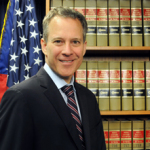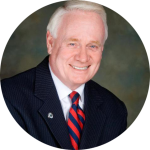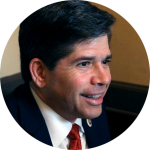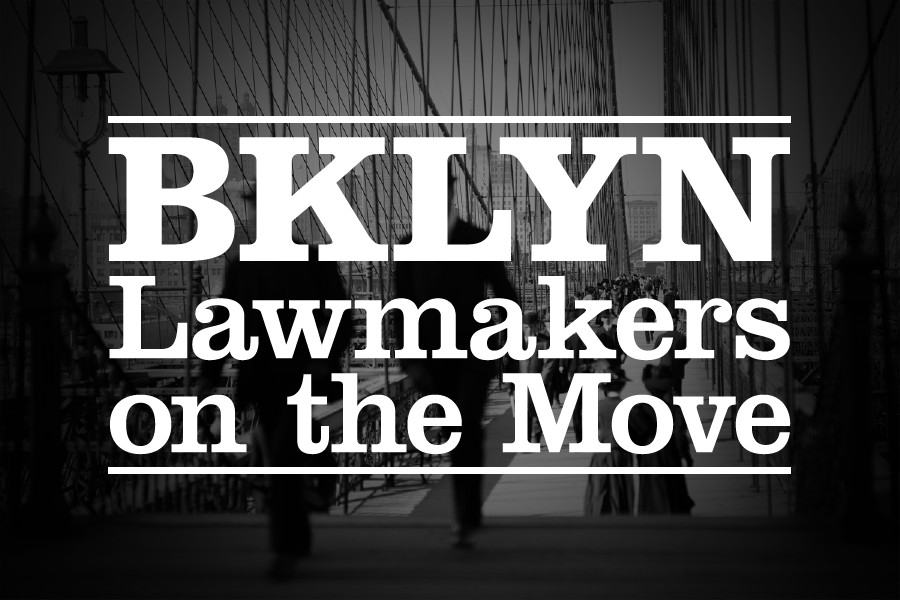Schneiderman Speaks At Dem County Committee Meeting

New York State Attorney General Eric Schneiderman is expected to be the guest speaker tonight as the Brooklyn Democratic County Committee meets in their semi-annual meeting.
The Committee, made up of delegates from each election district in the borough, are required by law to meet every two years. However, one of the first things Kings County Democratic Party Chair Frank Seddio did when he took the part reins was to have the committee meet every six months just so everyone can get their say or whatever. This is one of the those semi-annual meetings.
The meeting is slated for 8 p.m., tonight at Xaverian HS, 7100 Shore Road in Bay Ridge.
Golden Gets Property Tax Cap Approved in Senate

Bay Ridge State Sen. Marty Golden saw legislation he co-sponsored along with Satin Island Sen. Andrew Lanza that would cap the growth of property taxes annually for both businesses and residents pass the senate yesterday.
The bill caps on the growth of property taxes at two percent or the Consumer Price Index (CPI), whichever is less. This is consistent with the property tax cap in all other regions of the state that was
enacted in 2011 due to Senate Republican efforts to reduce New Yorkers’ tax burden.
“Today the State Senate took action to provide real tax relief to the hardworking families of New York City,” said Golden. “This measure would provide the residents of Brooklyn with the property tax relief they deserve and will go a long way towards reducing the cost of living in New York.”
Without a property tax cap, the City’s property tax levy rose 7.7 percent in 2014. Property taxes increased by 6.3 percent the last two years, and conservative estimates see them further increasing by an average of over 6 percent each of the next three years.
If the City started holding itself to a property tax cap starting in 2014, City taxpayers would have saved $432 million in the 2015 fiscal year, with the cumulative savings growing to $2.4 billion in the current year. Current financial forecasts predict the tax savings from a cap would grow to $4.5 billion in 2019.
Without a cap, by 2019 New York City’s residential taxpayers face a total of $1 billion more in taxes than what they currently pay – which equates to an average property tax increase of $1,000 per year – and
businesses are facing a total of $3.5 billion more.
The bill has been sent to the Assembly.
Bichotte Delivers on Promise to Protect Women’s Reproductive Rights

Midwood/Ditmas Park Assemblymember Rodneyse Bichotte saw legislation she co-sponsored requiring health insurance plans to cover an array of contraceptive measure pass the assembly yesterday.
Dubbed the Comprehensive Contraceptive Coverage Act, the bill will see health plans cover all FDA approved categories of contraceptive drugs, devices, and products, as well as voluntary sterilization procedures, contraceptive education and counseling, and related follow up services. The bill would also prohibit insurance companies from imposing any delays to the coverage or cost-sharing requirements such as co-payments or deductibles.
“This legislation adheres to a truly New York principle that access to healthcare is a right,” said Bichotte. “Notwithstanding level of income, insurance companies will be mandated to support contraceptives. Support of this Bill sends a message that will reverberate throughout New York, which is that Albany stands with all families, whether they be, man or woman, poor or rich, black or white, gay and straight.”
Bichotte said currently nearly half of all pregnancies in the United States are considered unintended. Furthermore, studies have demonstrated a link between unplanned pregnancies and a variety of health and social issues. For example, women who experience an unintended pregnancy are more likely to have insufficient prenatal care than those who are attempting to become pregnant.
While existing federal laws attempt to protect an individual’s right to contraceptive choices and accessibility, the Assembly recognizes that a lack of clarity and legal loopholes often result in a violation of these rights.
Malliotakis, GOP Colleagues Unveil Heroin Use Report

Bay Ridge/Staten Island Assemblywoman Nicole Malliotakis yesterday joined her colleagues to unveil a report on heroin use, treatment, prevention and education efforts in New York State.
The report was derived from community input gathered from seven forums held across the state by the Assembly Minority Task Force on Heroin Addiction & Community Response.
“This epidemic continues to be a frightening reality across our state and the report we put together offers additional proposals to build on the steps we have taken as a legislature over the past few years,” said Malliotakis. “In order to successfully keep residents and families safe from this problem, we must continue to improve inter-agency involvement between law enforcement, health care providers and, of course, members of our community. I believe that by continuing our work together,we can rid our communities of the danger that comes with these addictive substances and save lives.”
The HELP (Heroin ELimination & Prevention) Plan introduces the following measures:
- Provide Drug and Heroin Education
- Create Support Tools and Advocacy Programs
- Increase Funding and Improve Methods for Treatment and Recovery
- Reevaluate Insurance Parity Laws and Reimbursement Rates
- Criminal Justice and Judicial Improvements
- Improve Connections Between Correctional System and Addiction Services
To further combat prescription drug abuse at the local level, Malliotakis piloted a prescription drug take-back program at NYPD precincts her district. To keep these drugs, which are the gateway to heroin, out of the wrong hands, residents are encouraged to drop off any unwanted prescriptions at the precincts. These drop-offs ensure 24-hour access and a secure environment for disposal and has been a huge success.
“The program helps prevent unwanted or unused prescription drugs from getting into the wrong hands,” said Malliotakis. “Far too often residents dispose of prescription drugs in an unsafe or risky manner, leaving them to be picked up by children or grandchildren or a visitor for inappropriate use. It is critical that we take all steps necessary to get these dangerous substances out of our homes and off of our streets.”
Malliotakis also advocated for a change to the 2009 law that allows drug dealers to be sent to a drug treatment diversion program instead of mandatory jail sentence. She cited the October 2015 murder of NYPD Officer Eric Holder by Tyrone Howard, who had four felony drug convictions yet was released from prison and sent to drug treatment.
“Convicted drug dealers are using this loophole to get out of jail and back on the streets and it must stop,” said Malliotakis, who is working on legislation with Bay Ridge Senator Marty Golden to make the diversion program more restrictive.
Gentile Moves To Further Regulate Hookah Smoking

Bay Ridge City Councilman Vincent Gentile yesterday said he will continues to push legislation that includes hookah smoke under the Smoke Free Air Act.
Gentile’s push to further regulate hookah smoking comes after the lawmaker praised NYU’s hookah smoke study released on Monday titled “Secondhand hookah smoke: an occupational hazard for hookah bar employees”.
The study found that hookah bar employees in the City had high levels of toxins, notable internal inflammation associated with lung and heart disease and above average levels of exhaled carbon monoxide. Furthermore, nicotine was found in their blood.
While hookah bars are prohibited from using tobacco shisha, they continue to break the Smoke Free Air Act. Just last year, 13 out of 13 hookah bars in Manhattan and Queens were found to have tobacco in their shisha by the Department of Health.
“Whether the hookah smoke is directly or indirectly inhaled and whether it emanates from tobacco or non-tobacco shisha, it simply is not a healthy practice. Hookah smoke undeniably poses a threat to hookah smokers and non-smokers who have been subjected to second-hand hookah smoke, including hookah lounge employees,” said Gentile.
“The bottom line is research such as NYU’s recent study, has shown and continues to show that hookah smoke is harmful to the public’s health. Logically speaking, how is it possible that herbal shisha has skated by the SFAA and additional health related legislation?”
Gentile said as smoking hookah has become an exceedingly common and mainstream activity in the City among young adults, non-tobacco smoking products like herbal shisha are mistakenly considered safe alternatives to cigarettes by the general public. According to health experts, however, there is no such safe alternative. One session of smoking hookah has been equated to smoking 80-100 cigarettes.







